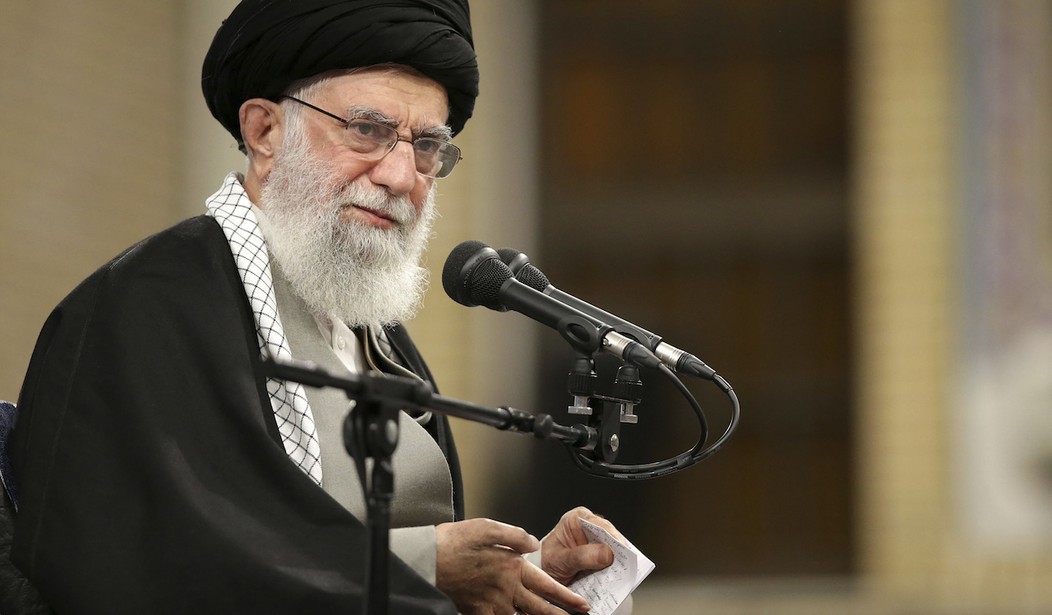The U.S. is making a special international argument with Iran.
One feature of Harvard of yore was that anyone could try rowing. And many did. I rowed a bit for the lightweights and was lousy. When I was given a green light to raise money from alumni from Leverett House, I used the $2500 to buy oars and a “cox box” with which the coxswain communicates with the rowers. The next year we won the intramural championship and went to the Henley Regatta on the Thames. We were trounced, but the nine of us took solace in knowing that we could have beaten those big British blokes in American football or crawling through small holes.
One of the most important lessons I took with me from rowing was the admonishment of the coxswain, “Keep your head in your own boat!” There is a tendency to look around at other boats during a race. Yet, the best course for winning is to keep focused on the tempo and power of your own boat. This lesson of sticking to my own affairs has been extremely useful during the decades since I left campus. One has to know when to get involved in others’ affairs and when to simply stick to one’s business and ignore the rest.
On the surface of things, Iran has a decent argument: we are an independent country, and if we want to have a nuclear program, it is our business. If Tehran decided to build a new subway in the capital, most would agree that it is not the business of the U.S. or any other country how they build or fund it. Obviously, nuclear issues have implications beyond the country’s borders. Iran has boasted that it is developing multiple long-range missiles and one does not have to be a rocket scientist to imagine a nuclear payload on the top of a multi-thousand kilometer missile. And that is a threat not only to Israel; it is a direct threat to Europe as well as U.S. interests. There is no reason to think that Iran could not develop a missile that could reach the U.S. or alternatively prepare a small bomb to be smuggled into the country for destruction and mayhem.
The U.S. and Israel have rightly moved their heads out of their boats to demand that Iran stop its nuclear enrichment program. A country laden with oil and devoid of high tech does not need a nuclear power future. Their goal in procuring and enriching uranium has been to produce nuclear bombs in spite of all of their deceitful claims to the contrary. They can protest and claim otherwise, but they have no need for nuclear-generated electricity and they have repeatedly called for the destruction of Israel—and the U.S. Countries large and small intervene in the activities of others either through clandestine or small-footprint actions. The U.S. has worked to change election trajectories and caused direct regime change through covert and military activity. What’s proposed with Iran is a military strike serving as a veto to the mullahs’ nuclear dreams. Israel destroyed reactors in Iraq and Syria for the same purposes. Iran is much further along, has more facilities, and has placed its program deep underground. Can Israel alone destroy the Iranian nuclear program? Would the U.S. lend a hand? Should she?
Recommended
Donald Trump is right in trying to end Iran’s nuclear ambitions via nonviolent negotiations. The problem is, as with nearly all things Islamic, that the two sides do not negotiate on the same coordinate system. The president and his point-man see a future of a nuclear-free Iran that involves trade and an end to the country’s international pariah status. That sounds great to a Westerner. The mullahs have completely different calculations: they feel a religiously-driven obligation to destroy Israel as they have been promising for decades. They base their power on funding anti-Western terror throughout the world. Agreeing to a smiling Witkoff might help with trade but would make Iran look weak: they blinked and gave up enrichment out of fear of Israeli or American bombs. There will be no agreement with Iran; their negotiators are trying to buy time to build a bomb and make the discussions moot. Witkoff should declare failure and get out of the way of the bombers. But he can’t. He is obsessed with making a deal and very well may make one that allows Iran to enrich uranium. No deal is better than a bad deal, if a solid bombing campaign follows the failed negotiations. The West’s enemies only understand and respect power. Destroying Iran’s nuclear infrastructure might be enough to lead to internal regime change.
Intervention in foreign countries is nothing new; declaring that another country cannot pursue a certain path and backing up the demand with a credible military threat is relatively rare. Hitler was shocked when England actually declared war on Germany after the latter rolled into Poland. He was certain that Chamberlain would roll over on Warsaw as he had on Prague. I can’t say that the U.S. government is well within international law to threaten to destroy Iran’s nuclear centers. I can say that doing so would be prudent. Imagine if Desert Storm had been launched at a time when Saddam had a couple of nuclear weapons laying around because former Israeli Prime Minister Menachem Begin did not send his new F-16s to Osirak? Israel was heavily criticized for its Iraqi and Syrian attacks; behind the condemnations were sighs of relief as two countries led by violent lunatics were denied backdoor access to the nuclear club.
A decision will have to be made soon. If Iran does not agree to an enforceable zero enrichment program, then the diplomats will have to stand down and let the planes and bombs do the talking. Iran desperately wants a bomb in order to destroy Israel and blackmail the West. It’s crunch time. Let’s hope that the attack on Iran is soon and successful. War should always be the last choice, but it has to be a credible option. The mullahs are hellbent on acquiring nuclear weapons and using them to advance their Islamic goals. Witkoff needs to finish his business and look up to see the planes on their way to their targets.

























Join the conversation as a VIP Member